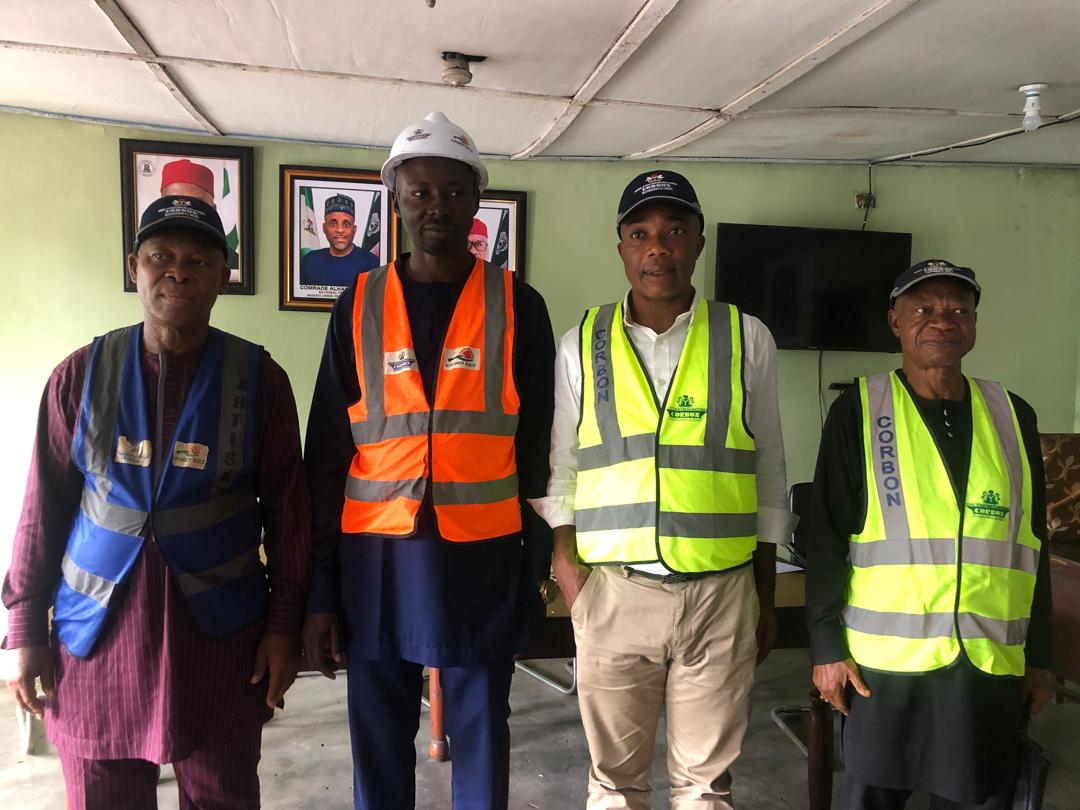The Abia State chapter of the Nigerian Institute of Building, has moved to forestall incessant building collapses in the State.
In a Press Briefing held at the NUJ Secretariat, Umuahia, the Institute harped on the need for professional builders to be used in all building construction, so as to put an end to the frequent building collapses in the state.
Speaking, the Abia State Chairman of the Nigerian Institute of Building, Builder Chinedu Nwanosike, said the cause of building collapse is negligence on the part of developers, adding that if professional builders are employed, the issue of building collapse would be forestalled.

He decried the non implementation of the building code and other Laws guilding town planning, while advocating for Builders to handle building projects in Abia State.

Addressing the topic, “Abating the Reoccurring Incidences of Building Collapse in Abia State: Who is Responsible”, the Practice Committee Chairman, Council of Registered Builders, Builder Wisdom Okoro, said their aim is to let Nigerians know that building collapse can be mitigated and reduced to the bearest minimum.
Giving background into the construction industry, Builder Okoro said the industry is broadly divided into the infrastructure or the civil construction work, which specializes on the construction of dams, railways, and other major infrastructure, and the building construction, which involves residential, commercial, and public structures.

He said while civil construction is typically managed by civil engineers, building projects involve a network of seven key professions, such as, architects, town planners, quantity surveyors, estate surveyors and valuers, land surveyors and geo-informatics experts, engineers, and builders.
The Practice Committee Chairman, noted that within the engineering, civil engineering plays the most direct role in building safety, working closely with geotechnical and structural engineering. “In the case of high-rise projects, geotechnical engineers perform soil analysis, which structural engineers use to design safe and stable frameworks. Structural engineers provide the bones of a building, while electrical and mechanical engineers handle wiring, piping, and other systems”.
Crucially, Builder Okoro added that the construction manager for any building project under Nigeria’s 2006 National Building Code, is the registered builder. He said the code which was jointly formulated by the seven professional bodies, assigns builders the sole responsibility of managing the building production process and supervising craftsmen and artisans. “This role, is not to be shared”, he explained.
He disclosed that the builder is meant to be on site from start to finish, serving as the production manager.

Speaking on the dangers of unqualified construction work, Okoro pointed that building collapses often stem from two main causes, natural disasters such as earthquakes, tsunamis and tremors, and the unnatural or man-made failures, such as collapses, that are entirely preventable.
He stressed that the most common and troubling is the the building collapses, disclosing the readiness of the Nigerian Institute of Building to nip the bud future occurrences in Abia State.

As part of measures to abate building collapses in the state, Okoro called on the government to give a decree to stop all building projects above bungalow, until the owners produce the builders undertaking the building project, and added that Town Planning Authorities should ask developers to produce the contractor who is handling their building processes, to get attestation and approval before the commencement of any building.
He said government must enforce the building code to ensure every project is done the right way and also place a penalty on anyone whose building may collapse, as a result of not following the code of the seven profession of the building construction industry.
In addition, Okoro said it is not the responsibility of site engineers to handle building projects, disclosing that any site engineer caught handling building projects, be jailed.

He commended the Governor of the State, Dr Alex Otti for making Abia better, with improved road infrastructure, remodelled schools and hospitals, but lamented how the building construction industry is left to suffer in the hands of quacks.
Builder Okoro further called on the government to sanitize the building industry, same way he has sanitized the education, health, and other sectors of the state.
On his part, the Registrar of the Nigerian Institute of Building, Builder John Ugwoeri, called for stricter enforcement of existing laws such as the Nigerian Urban and Regional Planning Law. He said that building approvals should only be granted by relevant agencies, including Town Planning Authorities, before any construction work begins.

Ugwoeri accused some of these authorities of contributing to the problem of building collapses in the country. According to him, the agencies tasked with controlling building activities often, focus more on collecting fees than ensuring the quality of work.
He said the Abia Governor should extend his reform efforts to sanitizing Town Planning Authorities in the State.
Also speaking, a Fellow of the institute, Builder Orji Nwankwo, emphasized that the builder is the only professional among the seven professions that is legally empowered and recognized under the National Building Code to manage building process from start to finish. “Builders are well-trained and qualified to handle construction. They should be given the opportunity to lead project”, he stated.

Fielding questions from Journalists, the building construction experts, also reaffirmed their commitment to eliminating quackery in the construction sector.
They highlighted their role in formulating the 2006 National Building Code, which clearly outlines the responsibilities of the seven building professions.
The institute further criticized the practice of appointing site engineers to oversee building projects, insisting that such a role does not exist under the law for building works. “By law, site engineers are meant for roads, water, dams, and railway projects and not buildings. For buildings, the correct professionals are structural engineers or geotechnical engineers, working alongside registered builders”.

They added that employing a builder does not increase project costs but instead helps reduce expenses by minimizing material waste, calling on Abians to employ the services of a professional builder.

























